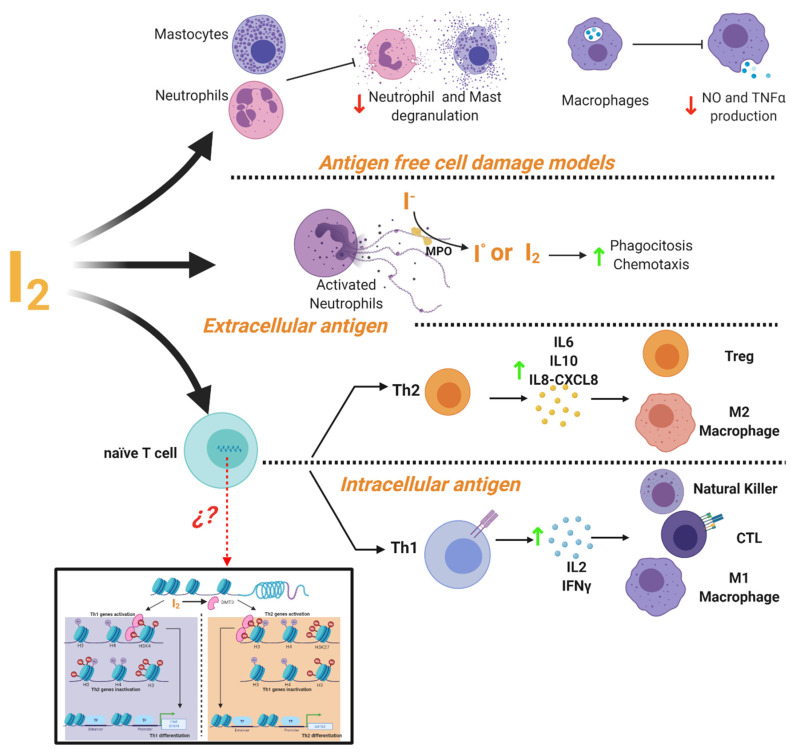Figure 4.
Mechanisms of immune modulation by molecular iodine (I2). Evidence showed that I2 the mediated activation or inhibition of immune responses depending on the cellular context. In a cell damage environment without antigens iodine supplementation inhibits the degranulation of neutrophil and mast cells, as well as the production of macrophages NO and TNFα. In response to extracellular antigens (e.g., bacteria or fungi), I2 improves the phagocytosis and chemotaxis of activated neutrophils. It also activates the Th2 response and the increase of cytokine secretion (IL-6, IL-10, IL-8-CXCL8) promoting the activation and differentiation of Treg lymphocytes and M2 macrophages. In response to intracellular antigens (e.g., virus-infected cells and cancer cells), I2 activates the Th1 response and increases the cytokine production of IL-2 and IFNγ, promoting the activation and proliferation of effector cells (NK, CTL and M1 macrophages). This differential response might be associated with epigenetic modifications facilitated by the I2-mediated activation of the demethylase enzyme (DMT3) that regulates the Th fate by activating and/or inactivating the specific genes for the differentiation of Th1 (T-bet and STAT4) or Th2 (GATA3).

